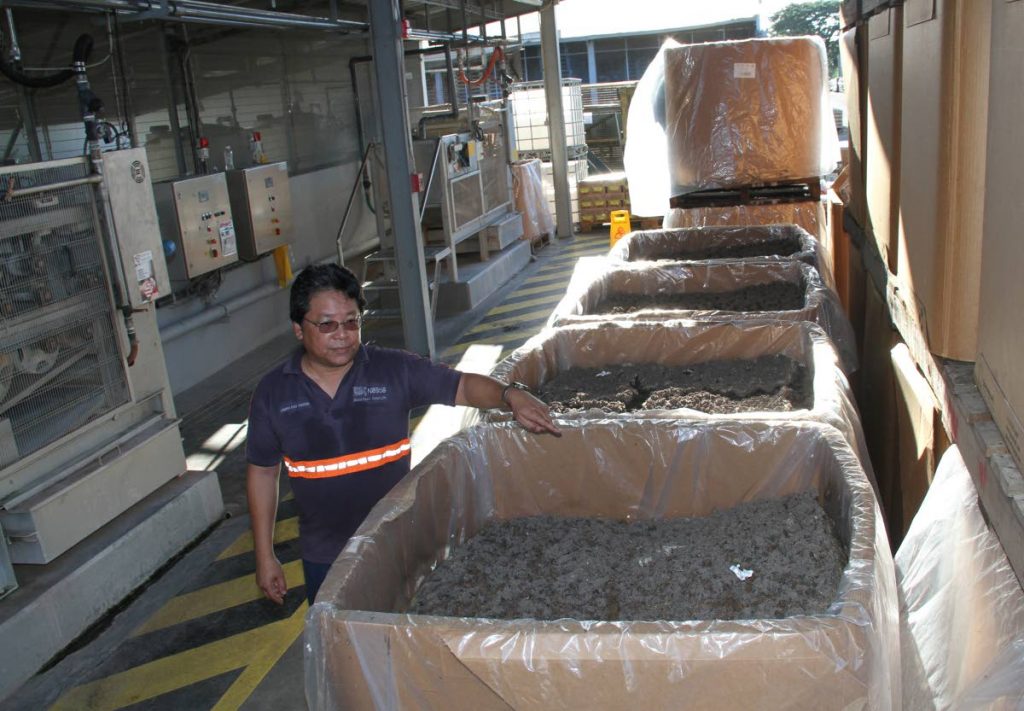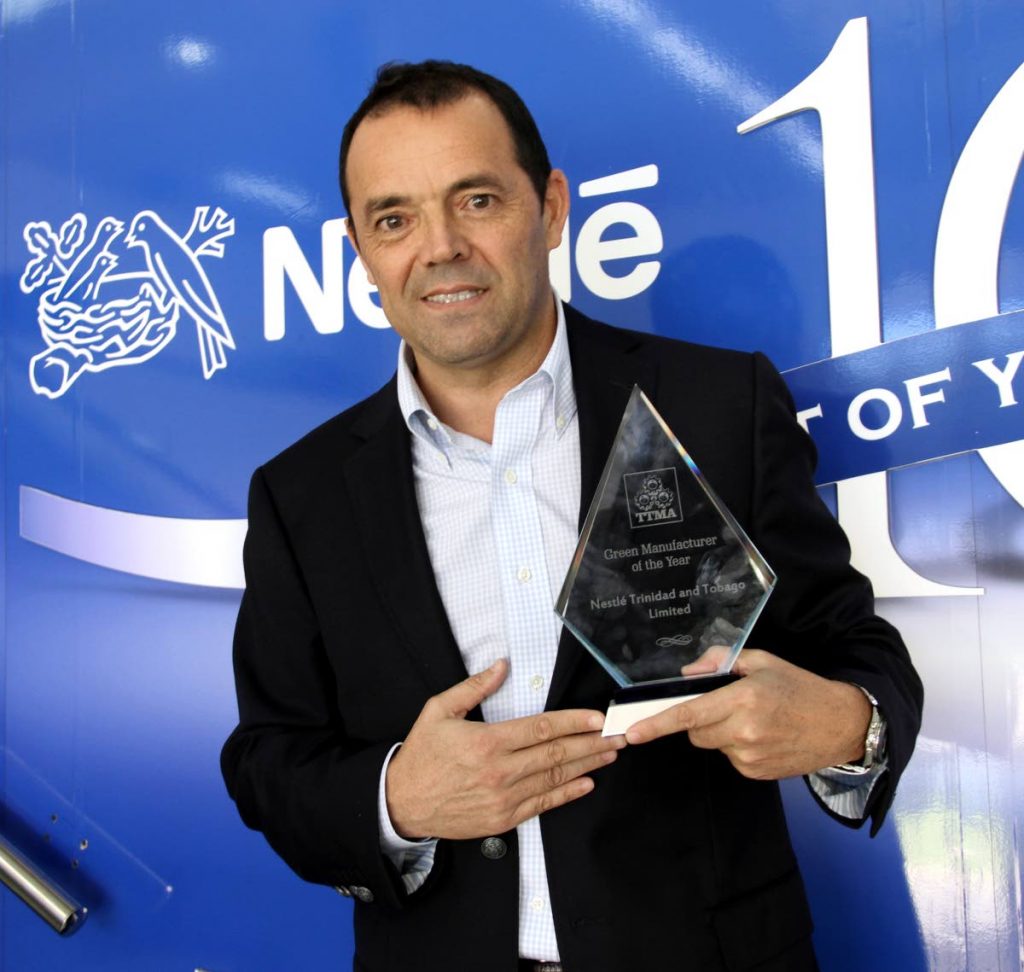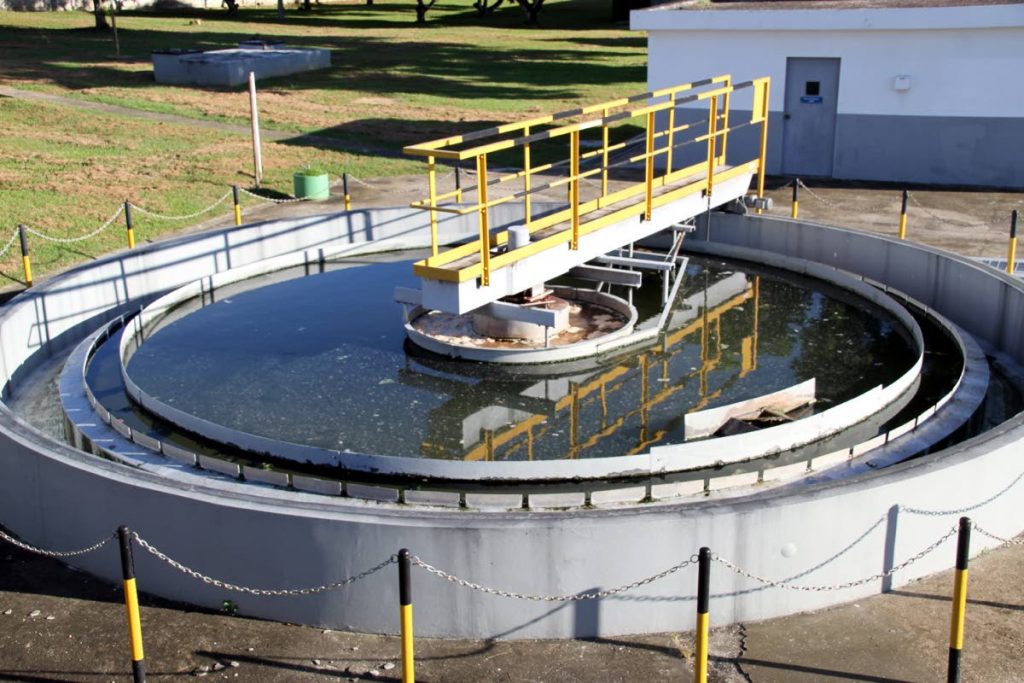Nestle: Go green now or lose out later

FOR companies holding off on implementing environmentally-friendly manufacturing practices owing to cost concerns, Patricio Torres, head of market, Nestle Anglo Dutch Caribbean Region, has a message for you – do it now or suffer financially later.
He was speaking with Business Day at Nestle's head office in Valsayn about Nestle Trinidad winning the Green Manufacturer of the Year Award at the annual TT Manufacturing Association (TTMA) Excellence in Manufacturing Awards Ceremony in October.
"We are extremely happy as a company because we got this recognition. This is an important award not just for me, but for Nestlé and all our employees and Nestle in Trinidad as well. I believe this is one of the most important ones when we are recognised for something we have embedded in our purpose."
He said Nestle operates everywhere in the world and the only way to ensure long-term operation in countries like TT, where Nestle has been operating for 105 years, is to ensure they are offering the best-quality products, are adding value to the communities and, most importantly, being responsible with the environment and the sustainability of operations.

Nestle received the TTMA award for: minimising waste; managing energy usage; minimising greenhouse gas emissions; achieving water efficiency and sustainability; and treating water discharge effectively. Nestle notes that its effluent waste water treatment plant, at its factory in Valsayn, was established in 2006 and was the first of its kind in TT. The plant creates fertiliser which is used by the dairy farmers who supply Nestle. Torres said the water discharged from the plant was even cleaner than the water in the river.
The company also compacts and recycles Tetra Pak and cardboard waste using specialised equipment at the factory site, for downstream applications from household items to roofing materials.
Torres said to manufacture in an environmentally sustainable manner, Nestle has to use different raw materials, energy and water.
"Our objective is to be as clean as we can."
As of 2017, 90 per cent of the packaging used at Nestle was collected, baled and sent for recycling. Torres said by 2021 the aim is to have zero waste to landfill. He added Nestle TT is ahead in the industry in terms of recycling and is both being referenced by and learning from competitors.

On companies recycling in TT, he said it was not about the individual companies but there must be a full value chain to help.
"We have to accelerate as a country."
He said Nestlé is always willing to support with its experience and also investment if necessary, adding that Nestlé has customers with good recycling programmes and the company works together with them. Torres also predicts that in the future recycling companies will become very important for TT and this country can be a Caribbean leader.
Managing energy usage, Torres said, is about being more efficient by reducing energy and water consumption and consuming less in everything the company produces. He gave the example of changing lightbulbs from fluorescent to LED, three per cent energy reduction through boiler efficiency and 12 per cent energy reduction in the ammonia plant.
"For me, this is not just about investment, it is about mindset. It is a combination of a good inspiration, which is our purpose, through ensuring the team has this mindset of putting this first in our agenda."
He said normally in business the objective is growing in sales and profits, but Nestle puts environmental sustainability on the same level. The company is aiming for zero environmental impact by 2030, which Torres described as a "huge commitment."
Internally the company uses reusable bottles and lunch containers and 90 per cent of what it uses is recyclable.
Consumers, he said, before buying or not buying a product, "scan the company to see if the company is (environmentally) responsible or not. If the company's not responsible, for sure that company is going to lose market share. Employees are the same."
He said millennials do not want to work in companies without strong values or purpose.
Torres said TTMA should be recognised for including the green award, showing the body is one or two steps ahead.
"It is not just about Nestle. It is about the government, it's about the companies, it's about the association putting this on the agenda."
And what about businesses, whether large or small, being concerned about the cost of implementing environmentally sustainable practices?
Torres said: "There is always a cost. Just having a mindset has a cost, because you need to focus, you need to learn, you need to change some processes internally, and it is time-consuming. So it has a cost.
"Then if we think about technology, also, there is a cost. But this is about surviving."
Companies that don't pay those costs now, he said, will end up paying higher costs in future: they will be out of business, because consumers will not consider them as an option.
"And it's not possible to operate without this understanding. So I think that cost, if it's high, it is less important than many other costs that they have today. So I would see this as an investment, and it is the best way to get a better connection with the society and the consumers."
He said Nestle received a lot of congratulations after receiving the Green Manufacturer of the Year Award and has also had conversations with some state agencies that have expressed interest in its operations. He added that the company's operations were open to the TTMA or any other business chamber.
"I am sure for next year's awards many more companies will be trying to get the Green Manufacturer of the Year."


Comments
"Nestle: Go green now or lose out later"